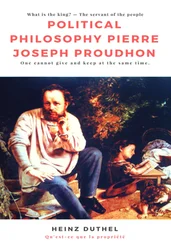In the broadest sense, like the pioneering Enlightenment scientists of America’s founding, Benjamin Franklin and Benjamin Rush, Thomas Jefferson was a meliorist who was passionate about the all-but-limitless possibilities for individual, social, and human progress. He looked hopefully to the future, where, ultimately, truth would win out. One of his great hopes in this regard was that human reason might ultimately triumph over the scourge of religious fanaticism, which history had shown to have done such damage to individual minds, lives, and nations. History, alas, was replete with instances in which religious orthodoxies and superstitions had thwarted the progress of reason. (One of Jefferson’s more notorious sallies was to take his scissors to his Bible, leaving the good stuff, but excising caked-on layers of fantasy, absurdity, and mumbo-jumbo.) Needless to say, Jefferson was the founding’s most relentless proponent of building “a wall of separation between Church & State,” and religious liberty and toleration. “The legitimate powers of government,” he wrote in Notes on the State of Virginia , in a quintessential statement of the role of liberal government, “extend to such acts only as are injurious to others…. [I]t does me no injury for my neighbour to say there are twenty gods, or no god. It neither picks my pocket nor breaks my leg.” As such, Jefferson was a proponent of secular government, and of a polity that consigned religion to the private sphere, where all manner of belief – and unbelief – was to be strictly voluntary, a matter between the individual and his God – or not. (In addition to the authorship of the Declaration of Independence, and the founding of the University of Virginia, Jefferson counted his third and final great accomplishment to be the authorship in 1777 of the Virginia Statute for Religious Freedom.)
Most of the original American colonies and, subsequently, states – with the exception of Rhode Island, Pennsylvania, Delaware, and New Jersey – had either single or multiple Christian establishments. In these, individuals were required to support the state’s official church, or a church of their choosing. In some cases, they were required by law to attend worship services. (There were also a host of other mandatory supports for established religions, and debilities for disapproved faiths.) Jefferson opposed these establishments, and their systems of privileges, supports, and penalties. The country was already moving in his direction at the time of independence, a trend reinforced by ideas concerning individual liberty that had driven the American Revolution. Joining Jefferson’s campaign on this, and continuing the Puritan legacy of Roger Williams, was James Madison’s Memorial and Remonstrance on Religious Assessments (1785), which marshaled a phalanx of religious and secular arguments in opposition to the religious establishment of Virginia, their home state. The country’s last state religious establishment (in Massachusetts) was repealed in 1833.
As one might expect given all this, Jefferson was a fervent proponent of free inquiry and the freedom of speech, convictions the tetchy statesman failed to consistently support, against his own stated principles, when he ended up being its target. Jefferson’s compatriot in opposing the Sedition Act (1798), James Madison, did better in this regard. Madison explicitly recognized, in his great statement in his Report to the Virginia Assembly (1800), that abuse of the exercise of a right was probably inevitably inseparable from its promise.
The acceptance of, and continuance hitherto in, the office to which your suffrages have twice called me have been a uniform sacrifice of inclination to the opinion of duty.
George Washington (1796)
As Hamiltonian and Jeffersonian political understandings came to set the poles of political contestation in the early republic, both sides resented and resisted the charge that their views were those of an interested party or faction. They, at least – though plainly not their scheming, obnoxious opponents – were thinking only of their country, and of its long-term national interest. Within the framework of republican thought, they apprehended themselves and theirs as self-abnegating, civic-spirited public servants, a mindset elegantly expressed in George Washington’s Farewell Address (1796) – the very same President in whose cabinet these opposing poles began to be charged, each powerfully repelling the other.
The political thought of the colonial settlements that would eventually unite – minus the loyalists – to become the fledgling United States was a honeycomb of affinities, arguments, dissonances, and what today look like contradictions, many of which continue to shape, and vex, the country. The Puritans who emigrated to Massachusetts Bay seeking and celebrating religious freedom found it next to impossible to respect the religious liberties of those they took to be misguided, if not heretical. Those who dissented from their orthodoxy were harassed, jailed, and banished. Some Quakers were even executed. The voluntarist organization of the Puritan churches both pioneered proto-democratic and proto-liberal understandings of government by consent, and were premised – as was the participatory democracy of ancient Athens – on the community’s powers of expulsion and exclusion.
The American Revolution, fueled by appeals to universal Enlightenment values like liberty and equality, popular sovereignty, and national self-determination, was clearly one of world history’s most significant anticolonial uprisings. But vis-à-vis the land’s indigenous peoples, the Americans who made that revolution were themselves an ascriptive, expansionist, and often brutal colonial power who rarely afforded those who stood in their way universal recognition as fellow human beings. The same was true for their treatment of the enslaved Africans, who were bought and sold as chattels. What Jefferson celebrated as an “empire of liberty” was an empire of dispossession and slavery. Many, including Jefferson himself, recognized these contradictions. Some, to be sure, challenged these injustices in the name of liberal Enlightenment values. Others, however, either saw no contradiction at all, or justified their beliefs and their practices. Liberty, as they would have it, was for those who had the capacity to rationally and intelligently exercise it. And equality was for equals.
The liberal and republican strains of colonial and early American political thought also vied for pre-eminence, with these different frameworks being enlisted in different times and different places by different people – and sometimes by the same person in a single sermon, speech, or pamphlet. In many cases, the opposition could seem a false one, especially when we take into account that classical and Renaissance republican thought was being retooled in the modern world for that new political animal, the “commercial republic” nation-state.
These tensions and dynamics played out in debates over the governing structures set out, first, in the country’s state constitutions, then in the Articles of Confederation, the US Constitution, and, following the hard-fought ratification of the Constitution, in the question of how the powers and limits on them would be applied and interpreted. Far from resolving matters concerning the legitimate powers of government generally and more specifically (legislative, executive, judicial; the states versus the national government), the oppositions that structured the debates between the Federalists and the Antifederalists flowed into George Washington’s administration, where the New Yorker Alexander Hamilton, a proponent of an energetic federal government taking an active role in building a finance-capitalism-fueled urban-industrial economy, with hopes for wealth, glory, and national dominance on a global scale, fought for Washington’s ear with the Virginian Thomas Jefferson, a proponent of rural agrarianism and localism, who was deeply suspicious of both finance capital and powerful (especially centralized, distant) government.
Читать дальше












